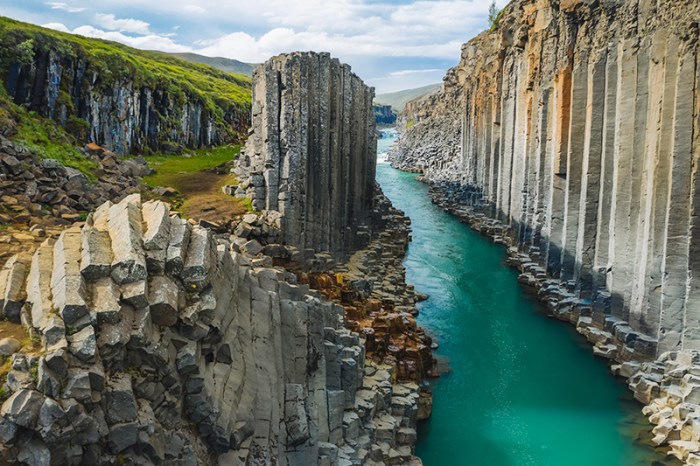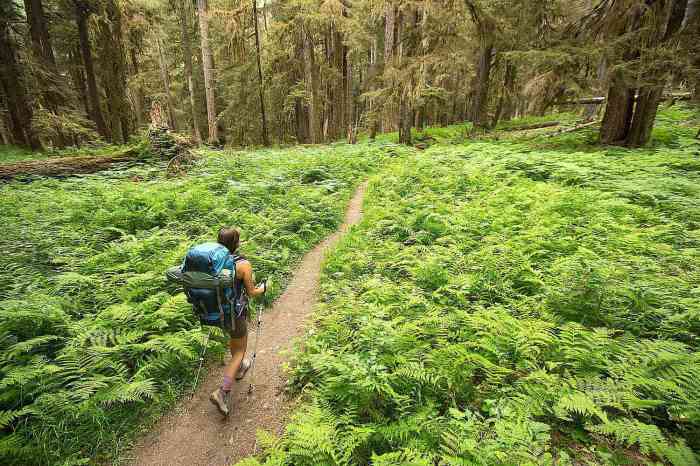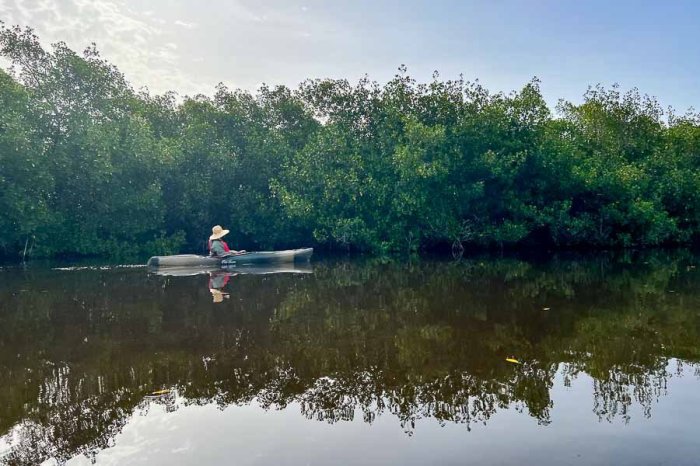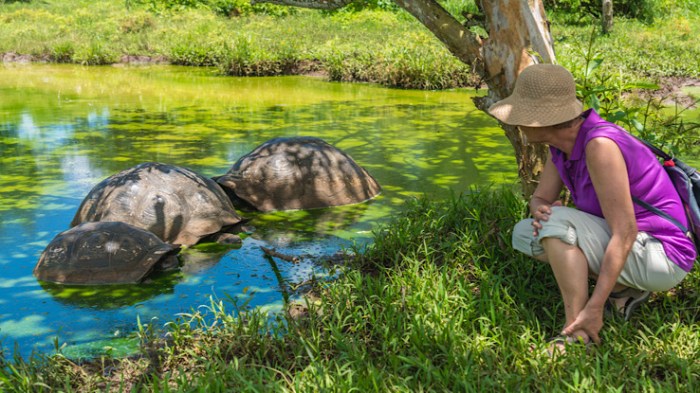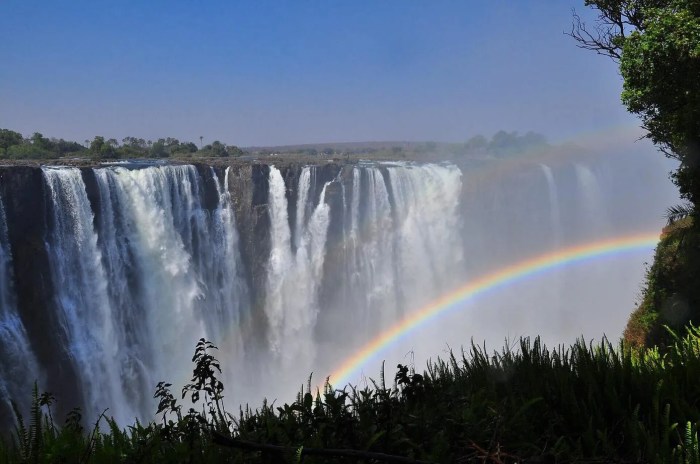Thalori Traditional Ecotourism Village A Cultural Journey
Thalori Traditional Ecotourism Village offers a unique immersion into a vibrant cultural landscape. Nestled in a breathtaking natural setting, this village seamlessly blends age-old traditions with modern ecotourism practices. The village’s rich history and unique cultural heritage are beautifully showcased through various activities and experiences, inviting visitors to partake in a truly enriching journey.
From experiencing traditional customs and festivals to exploring the region’s biodiversity, Thalori presents an exceptional opportunity for cultural exchange and environmental appreciation. This ecotourism initiative is deeply rooted in the community’s values, ensuring that visitors are not just tourists but active participants in the preservation of the village’s heritage and environment. Detailed information about services, activities, and the village’s infrastructure is available, providing a comprehensive overview of this remarkable destination.
Introduction to Thalori Traditional Ecotourism Village
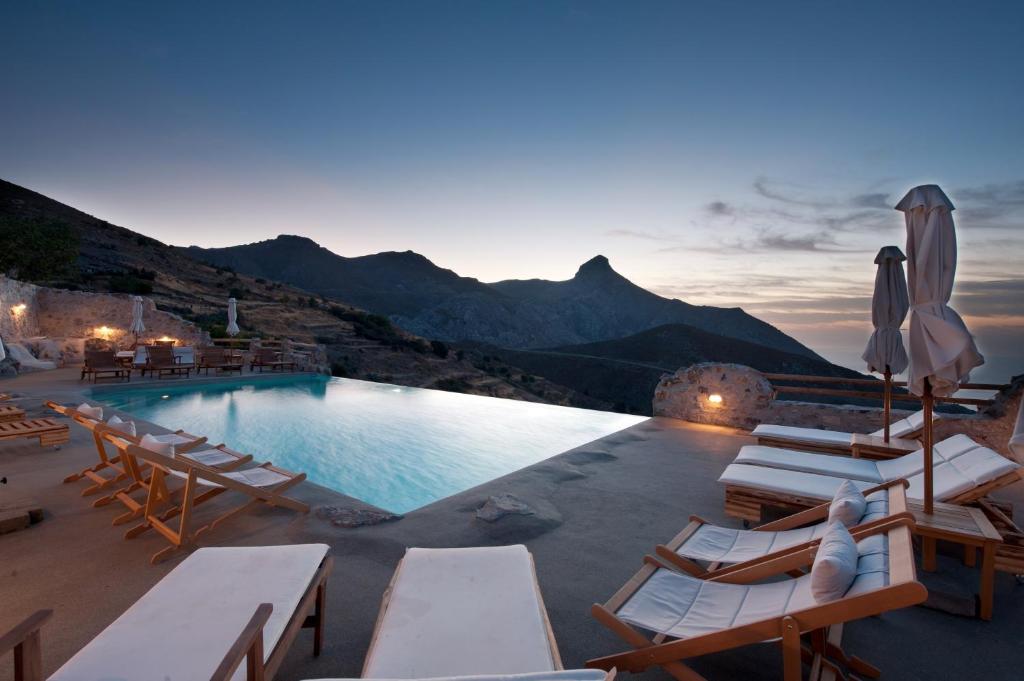
The Thalori Traditional Ecotourism Village is a vibrant community dedicated to showcasing its rich cultural heritage while promoting sustainable tourism. It offers a unique opportunity to experience rural life in a traditional setting, interacting with local artisans and learning about their crafts. The village carefully balances preserving its authentic culture with the needs of visitors, creating a mutually beneficial experience.
The village’s commitment to ecotourism extends beyond simply showcasing the local culture; it aims to foster respect for the environment and its resources. This involves actively promoting responsible practices among tourists and supporting local initiatives aimed at conservation. This philosophy is at the heart of Thalori’s success as a sustainable destination.
History and Evolution as an Ecotourism Destination
Thalori’s transformation into an ecotourism village has been a gradual process, rooted in the community’s desire to diversify its economic opportunities while preserving its traditions. Early efforts focused on establishing basic infrastructure and showcasing local crafts and traditions. Over time, the village has developed partnerships with local and international organizations, which have helped in the development of eco-friendly accommodations, cultural programs, and educational initiatives. This evolutionary process has led to a sophisticated understanding of sustainable tourism practices, ensuring the preservation of the village’s cultural integrity.
Core Values and Principles
The core values underpinning Thalori’s ecotourism approach are rooted in the community’s deep respect for its heritage and the environment. These values are exemplified in the village’s commitment to preserving traditional practices, supporting local artisans, and fostering environmental stewardship. The village believes in minimizing its environmental footprint and maximizing its positive impact on the local community. By adhering to these core values, Thalori ensures the long-term sustainability of its ecotourism initiatives.
Key Services and Amenities
Thalori offers a range of services and amenities to cater to the needs of visitors. These facilities are crucial to providing a comfortable and enriching experience.
| Service Category | Specific Services | Description | Additional Notes |
|---|---|---|---|
| Accommodation | Traditional Cottages, Eco-lodges | Guests can choose from traditional cottages or eco-lodges, each offering a unique blend of comfort and cultural immersion. | Cottages often feature local craftsmanship and traditional architecture. |
| Activities | Cultural Performances, Nature Walks, Craft Workshops | Guests can participate in cultural performances, nature walks, and hands-on craft workshops to learn about the local culture and environment. | Nature walks often focus on the area’s biodiversity and conservation efforts. |
| Food & Drink | Local Cuisine, Organic Options | The village offers opportunities to sample local cuisine, with options for organic and healthy choices. | Local restaurants are supported to ensure the sustainability of local businesses. |
| Shopping | Local Crafts, Souvenirs | Guests can purchase handcrafted souvenirs and locally produced goods. | Shopping provides direct support for local artisans and businesses. |
Village’s Cultural Heritage and Traditions
The Thalori village boasts a rich tapestry of cultural heritage, meticulously preserved through generations. These traditions form the very essence of the community, shaping their identity and providing a unique perspective on life. The customs, festivals, and ceremonies reflect the deep-rooted values and beliefs of the people, offering a captivating glimpse into their history and heritage.
The village’s cultural heritage isn’t merely static; it’s a vibrant expression of artistry and craftsmanship, continually evolving while maintaining its core identity. Local artisans play a crucial role in the village’s economy, transforming raw materials into beautiful and functional objects, often imbued with symbolic meaning. These crafts represent a vital link to the past, demonstrating a deep connection to the land and its resources.
Traditional Customs, Festivals, and Ceremonies
The Thalori people observe a diverse range of traditional customs, festivals, and ceremonies throughout the year. These events, often linked to agricultural cycles or significant milestones, play a vital role in maintaining social cohesion and reinforcing cultural identity. Celebrations are usually accompanied by traditional music, dance, and storytelling, ensuring a dynamic and vibrant cultural experience. For example, the annual harvest festival marks the culmination of the agricultural year, celebrating the bounty of the land.
Significance of Local Art, Music, and Craftsmanship
Thalori art, music, and craftsmanship are deeply intertwined with the village’s history and identity. They often reflect the natural environment and the spiritual beliefs of the community. These artistic expressions serve as powerful tools for storytelling, preserving cultural memory, and passing down knowledge across generations. The unique style of music, often accompanied by traditional instruments, forms a vital part of community gatherings and festivities.
Role of Local Artisans
Local artisans are integral to the economic fabric of the Thalori village. Their skills and creativity are essential in producing goods that not only meet local needs but also contribute to the village’s income through trade. The quality of their work often surpasses commercial products, demonstrating their mastery of their craft. The demand for these items often extends beyond the village, creating avenues for economic empowerment and sustainable development.
Traditional Art and Craftsmanship
| Art Form | Description | Materials Used | Significance |
|---|---|---|---|
| Weaving | The art of creating textiles using natural fibers like cotton or silk. | Cotton, silk, jute, natural dyes | Preserves cultural heritage, often depicting traditional motifs and patterns. |
| Wood Carving | Sculpting intricate designs into wooden objects. | Wood from local trees, such as teak or mahogany | Often used for religious icons, household items, and decorative pieces, carrying symbolic value. |
| Pottery | Creating functional and decorative pottery using clay. | Clay from local sources, natural pigments | Essential for daily life, often decorated with symbolic motifs. |
| Basketry | Crafting baskets and other containers from natural materials. | Bamboo, reeds, vines | Used for storage, carrying goods, and showcasing artistic skill. |
Ecotourism Activities and Experiences
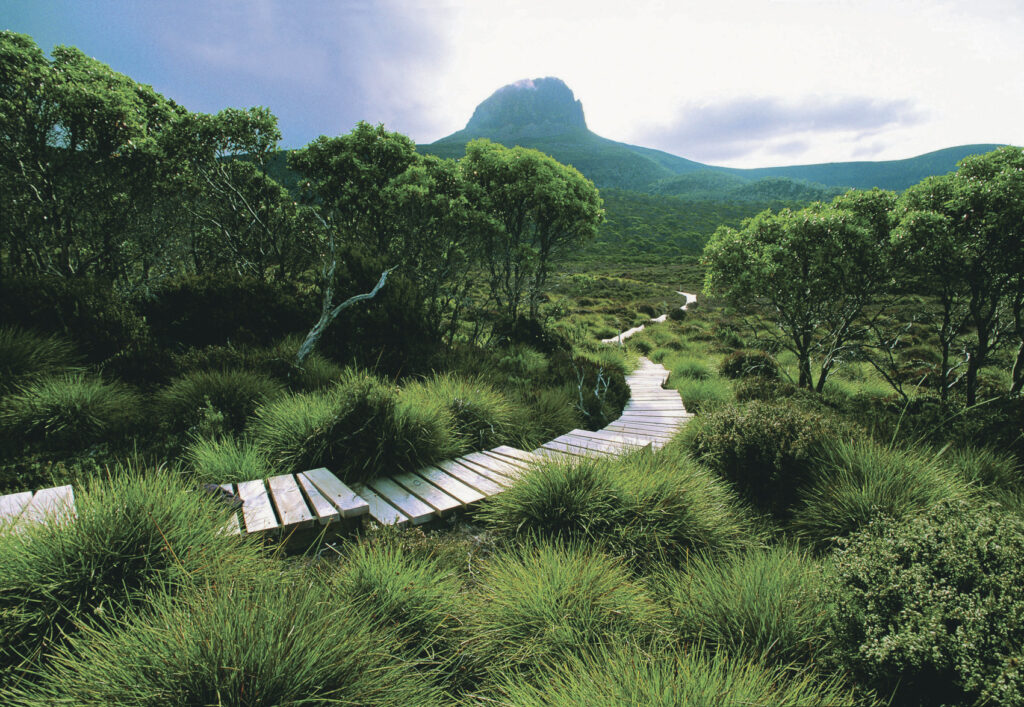
Thalori Traditional Ecotourism Village offers a range of immersive experiences that connect visitors with the natural beauty and cultural richness of the region. These activities are designed to be both enjoyable and environmentally responsible, contributing to the long-term sustainability of the village.
The village meticulously crafts these experiences to highlight the unique characteristics of the area, providing insights into traditional practices and showcasing the harmonious coexistence between human life and the environment.
Ecotourism Activity Options
The village provides a variety of ecotourism activities, catering to diverse interests and preferences. These activities include guided nature walks, allowing visitors to explore the surrounding forests and observe local flora and fauna. Birdwatching tours, focusing on the region’s diverse avian species, are also offered. Furthermore, cultural immersion experiences provide insights into the traditional crafts, customs, and daily life of the local community.
Specific Locations for Activities
Nature walks typically traverse designated trails within the village’s forest reserve, offering varying levels of difficulty. Birdwatching tours are conducted at specific locations known for their birdlife, often near designated wetlands or along riparian zones. Cultural immersion experiences take place at the village’s community center, traditional homes, and local craft workshops.
Sustainability Measures
The village prioritizes environmental conservation and resource management. Sustainable practices include the use of renewable energy sources like solar power to minimize the carbon footprint. Water conservation measures are in place to ensure the availability of this vital resource. Waste management programs, including composting and recycling initiatives, aim to reduce the village’s environmental impact. Additionally, the village encourages visitors to adopt sustainable practices, such as reducing their consumption and respecting the local environment. These measures are vital for the long-term viability of the ecotourism initiatives.
Comparison of Traditional and Modern Ecotourism Practices
| Aspect | Traditional Ecotourism | Modern Ecotourism | Sustainability Focus |
|---|---|---|---|
| Transportation | Walking, cycling, or animal-drawn carts | Hybrid vehicles, electric vehicles, and eco-friendly transportation options | Minimizing environmental impact through reduced emissions and noise pollution. |
| Accommodation | Traditional homes, guest houses with locally sourced materials | Eco-lodges, hotels with energy-efficient designs, and sustainable practices | Prioritizing local resources and minimizing environmental damage during construction. |
| Activities | Guided nature walks, traditional ceremonies, and cultural exchanges | Adventure tourism, wildlife safaris, and educational tours | Balancing conservation with economic benefits and cultural preservation. |
| Economic Benefits | Directly supporting local communities through local employment and craft sales. | Supporting local businesses, promoting the village’s economy, and fostering community development. | Ensuring fair compensation for local communities and environmental stewardship. |
Community Engagement and Economic Impact
The Thalori Traditional Ecotourism Village thrives on the active participation of its community members. Their involvement is not merely passive; it is central to the village’s success and the preservation of its cultural heritage. Ecotourism provides a powerful economic engine, generating revenue streams that directly benefit the local population.
Ecotourism’s impact on the Thalori community extends beyond simply creating jobs. It fosters a sense of shared responsibility for the environment and cultural traditions, empowering local people to be active stewards of their heritage. This engagement, coupled with sustainable practices, ensures the long-term viability of the ecotourism industry and its benefits for generations to come.
Community Involvement in Ecotourism
The local community plays a crucial role in various aspects of the ecotourism industry. This includes offering traditional hospitality, guiding visitors through the village, and demonstrating local crafts and traditions. Many community members are directly involved in operating ecotourism businesses such as homestays, restaurants, and souvenir shops. This ensures that the benefits of tourism are distributed within the village.
Economic Benefits for the Local Community
Ecotourism in Thalori is a significant source of income for the community. The influx of tourists translates into increased employment opportunities, stimulating economic activity, and improving the overall quality of life for villagers. It allows local artisans and craftsmen to showcase their skills and sell their products directly to visitors, generating revenue and supporting traditional practices. The demand for locally produced goods and services also benefits other businesses and vendors within the village.
Fair Compensation and Benefits for Local Inhabitants
Fair compensation is a cornerstone of the ecotourism model in Thalori. Local guides, homestay hosts, and artisans are paid competitive wages and receive fair prices for their products. Community-based organizations manage a portion of the tourism revenue, ensuring a transparent and equitable distribution of profits among the village members. Regular meetings and discussions are held to address any concerns and ensure that all stakeholders benefit from the ecotourism initiatives.
Income Generated by Ecotourism, Thalori traditional ecotourism village
| Sector | Homestays | Local Crafts & Services | Ecotourism Activities |
|---|---|---|---|
| Local Guides | ₹5000-₹10,000 per month (average) | ₹3000-₹6000 per month (average) | ₹4000-₹8000 per month (average) |
| Homestay Hosts | ₹8000-₹15,000 per month (average) | ₹2000-₹4000 per month (average) | ₹2000-₹4000 per month (average) |
| Artisans | ₹3000-₹6000 per month (average) | ₹5000-₹10,000 per month (average) | ₹1000-₹2000 per month (average) |
| Restaurant Owners | ₹10,000-₹20,000 per month (average) | ₹5000-₹10,000 per month (average) | ₹10,000-₹20,000 per month (average) |
Note: Figures are approximate averages and may vary based on individual performance, seasonality, and the specific nature of the services provided. The table provides a general idea of the potential income generated within the village.
Infrastructure and Accessibility
The Thalori Traditional Ecotourism Village aims to provide a welcoming and enriching experience for visitors. A crucial aspect of achieving this is the quality and accessibility of the village’s infrastructure. A well-developed infrastructure facilitates ease of movement, enhances visitor experience, and contributes significantly to the village’s overall appeal.
The village’s infrastructure currently encompasses necessities, but further development is necessary to accommodate the growing interest in ecotourism. This development must also consider the needs and preferences of tourists, promoting a balance between the preservation of the village’s traditional character and the introduction of modern amenities.
Accommodation Facilities
The village offers a range of traditional guesthouses and homestays, providing a glimpse into the local way of life. These accommodations are designed to blend seamlessly with the natural environment, often featuring locally sourced materials and traditional architectural styles. However, options for larger groups or families with specific needs might be limited. Some guesthouses may lack modern conveniences like air conditioning or private bathrooms.
Transportation and Communication
The village’s location relative to major transportation hubs is a key factor in its accessibility. The presence of a nearby bus stop or a designated taxi pickup point, coupled with clear signage and reliable transportation options, greatly improves the ease of reaching the village. Mobile phone reception and internet access are crucial for tourists seeking information, booking accommodations, and staying connected. However, there may be limitations in areas where internet connectivity is weak or unavailable.
Accessibility for Tourists
The village’s accessibility for tourists depends on several factors, including proximity to major cities and the availability of suitable transportation options. For example, the proximity to a major highway or railway station, as well as the presence of regular public transportation, significantly impacts accessibility. The existence of local transportation services like taxis or bicycles can also play a crucial role in ensuring ease of access.
Challenges and Limitations
Infrastructure development in rural areas often faces challenges. Limited resources, bureaucratic hurdles, and the need to balance development with environmental preservation are key constraints. Finding skilled labor for construction and maintenance, especially for specialized tasks related to sustainable infrastructure, can also pose difficulties.
Infrastructure Improvement Needs
| Improvement Area | Specific Needs | Estimated Cost (Approximate) | Timeline (Estimated) |
|---|---|---|---|
| Accommodation | Expanding options for larger groups, providing more modern amenities (e.g., air conditioning, private bathrooms) in some accommodations, and upgrading existing facilities. | Variable, depending on the scope of upgrades | 2-5 years |
| Transportation | Improving local transportation options, establishing reliable shuttle services, and ensuring signage clarity. | Variable, depending on the scope of upgrades | 1-3 years |
| Communication | Expanding internet access throughout the village, ensuring consistent mobile phone reception, and installing Wi-Fi hotspots in key locations. | Variable, depending on the scope of upgrades | 1-3 years |
| Accessibility | Improving pathways and roads for better accessibility, considering the needs of tourists with disabilities, and enhancing the overall tourist experience. | Variable, depending on the scope of upgrades | 2-5 years |
Environmental Conservation and Sustainability
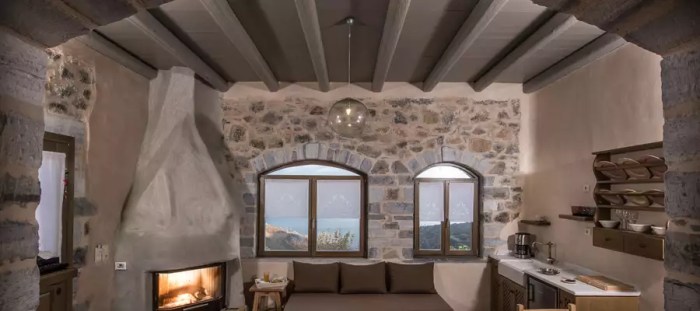
Source: webhotelier.net
Thalori Traditional Ecotourism Village prioritizes environmental stewardship, recognizing the intrinsic value of its natural surroundings. The village understands that responsible ecotourism is crucial for long-term sustainability, balancing economic development with environmental protection. This commitment is reflected in the village’s conservation efforts and its promotion of responsible tourism practices.
Conservation Efforts by the Village
The village actively works to preserve its natural resources. This includes implementing sustainable forestry practices, minimizing waste generation, and actively combating pollution. These efforts contribute to maintaining biodiversity and ecosystem health. Local communities are involved in these initiatives, ensuring their active participation and ownership of the conservation process. This approach fosters a deep sense of responsibility and ensures the long-term preservation of the village’s natural environment.
Importance of Sustainable Practices in Ecotourism
Sustainable practices are paramount to the success of ecotourism. By minimizing the environmental impact of tourism, the village ensures that the natural beauty and resources remain intact for future generations. This approach fosters responsible tourism, balancing economic growth with environmental preservation. Sustainable practices encompass resource management, waste reduction, and energy efficiency, thereby mitigating the negative impacts of tourism.
Role of Local Communities in Environmental Protection
Local communities are vital partners in environmental conservation. Their deep understanding of the local ecosystem and traditional practices plays a crucial role in safeguarding the natural beauty of the region. The village actively engages local communities in conservation efforts, ensuring their voices and perspectives are heard and incorporated into decision-making processes. By involving local communities, the village strengthens its commitment to environmental sustainability. This fosters a sense of collective responsibility and ownership, crucial for long-term conservation success.
Promoting Responsible Tourism Practices
The village actively promotes responsible tourism practices through educational programs and initiatives. These initiatives aim to educate visitors about the importance of respecting the local environment and cultural heritage. The village emphasizes the importance of minimizing its environmental footprint, promoting waste management, and respecting local customs. Examples include providing clear guidelines for waste disposal, encouraging the use of eco-friendly transportation options, and promoting responsible wildlife viewing. This commitment ensures that tourism benefits the community and environment without causing harm. The village’s dedication to responsible tourism helps to create a positive and lasting impact on the local ecosystem.
Illustrative Examples of Thalori Village Life
The daily rhythm of Thalori village life is deeply intertwined with its cultural heritage and traditional practices. This section offers a glimpse into the unique aspects of village life, showcasing how ecotourism interacts with and enriches the community. It highlights the cultural exchange that naturally arises as tourists engage with the local people.
Daily Village Activities
The morning in Thalori typically begins with the villagers preparing for their day’s work. Women often gather to engage in traditional crafts like weaving or pottery, while men might be involved in farming or other agricultural tasks. Children are often seen participating in age-appropriate activities, learning essential skills from their families. The midday often finds the community gathering for communal meals, strengthening social bonds, and fostering a sense of shared identity. Evening brings opportunities for storytelling, music, and traditional dance performances.
Interactions Between Tourists and Villagers
Tourists visiting Thalori are welcomed with genuine hospitality. Villagers often share their knowledge of local flora and fauna, guiding tourists on nature walks and providing insights into the rich ecosystem surrounding the village. These interactions create opportunities for cultural exchange, allowing both tourists and villagers to learn from one another. For example, tourists might learn about traditional farming techniques from villagers, while villagers gain exposure to diverse perspectives from visitors.
Cultural Exchange Through Ecotourism
Ecotourism in Thalori fosters a meaningful exchange of culture. Tourists appreciate the beauty and authenticity of the village’s traditional lifestyle, while villagers gain exposure to new ideas and perspectives. This reciprocal exchange promotes understanding and respect between different cultures. Villagers might teach tourists traditional songs or dances, while tourists might share stories of their own cultures. This mutual exchange strengthens the village’s cultural identity while broadening perspectives for all involved.
Traditional vs. Modern Village Life
| Aspect | Traditional Village Life | Modern Village Life | Impact of Ecotourism |
|---|---|---|---|
| Economy | Primarily based on agriculture and traditional crafts. | Increased reliance on tourism, alongside traditional methods. | Ecotourism provides new income streams, but traditional crafts are still valued. |
| Technology | Limited use of modern technology. | Gradual integration of technology for communication and business. | Technology facilitates communication with tourists and enhances accessibility for the community. |
| Social Interactions | Strong community bonds and close-knit relationships. | Community bonds remain strong, but modern communication methods are incorporated. | Ecotourism provides opportunities for interaction between tourists and villagers, reinforcing community bonds. |
| Environment | Deep respect for nature and sustainable practices. | Balancing modernization with environmental conservation. | Ecotourism promotes awareness and conservation efforts. |
The table above highlights the differences between traditional and modern village life in Thalori, showcasing the impact of ecotourism on the community. Traditional values are preserved while adapting to the evolving needs of the community.
Illustrative Examples of Ecotourism Activities
Thalori Traditional Ecotourism Village offers a diverse range of activities that showcase the region’s unique natural and cultural heritage. These experiences provide visitors with opportunities to immerse themselves in the local way of life while appreciating the beauty of the environment.
Exploring the region’s biodiversity, participating in cultural performances, and engaging with traditional crafts provide a glimpse into the heart of Thalori. A typical day trip offers a taste of this rich experience. The local cuisine, a product of the region’s agricultural practices, adds another layer to the cultural immersion.
Nature Trails and Biodiversity
Thalori’s diverse landscapes offer a variety of nature trails, each presenting unique ecosystems. These trails are designed to showcase the region’s rich biodiversity, including a variety of flora and fauna. From the lush, misty mountain slopes to the sun-drenched valleys, the trails reveal the natural beauty of the area. The trails are carefully designed to minimize environmental impact and enhance visitor appreciation for the natural surroundings. Birdwatching opportunities are plentiful, with several endemic species found in the area. Specific examples include the colorful Himalayan Monal and the elusive snow leopard, though sightings are infrequent. The trails may also offer opportunities to spot various species of butterflies, reptiles, and mammals. This rich biodiversity provides a valuable learning experience for visitors.
Cultural Performances and Significance
Thalori’s cultural performances are integral to the village’s identity. These performances showcase the region’s rich artistic heritage and traditions. Local artisans and storytellers demonstrate the unique forms of music, dance, and theatre that have been passed down through generations. Traditional music and dance performances often celebrate local harvest festivals, significant historical events, or the life cycle of the community. The performances provide an engaging opportunity for visitors to learn about the region’s cultural nuances. The performers’ costumes, music, and choreography are carefully crafted and are essential elements of the performance, offering insight into the deep-rooted cultural values.
Traditional Crafts and Artistic Value
Thalori is known for its intricate traditional crafts. These crafts showcase the artistic skills and ingenuity of the local artisans. Examples include woodcarving, weaving, pottery, and metalwork. The intricate designs and craftsmanship reflect the region’s artistic heritage and aesthetic sensibilities. These crafts are not merely decorative; they often serve practical purposes, integrating seamlessly into daily life. Many of these crafts are now available as souvenirs for visitors.
A Typical Day Trip in the Village
A typical day trip in Thalori involves a combination of activities. It may begin with a scenic drive or hike through the region’s natural landscapes. The day might conclude with a traditional Thali meal, a meal showcasing the region’s cuisine. Throughout the day, visitors can interact with the local community, learning about their way of life and experiencing the hospitality that characterizes the village. A day trip to Thalori offers a complete cultural and natural immersion experience.
Unique Features of the Thalori Region’s Natural Environment
The Thalori region boasts a unique natural environment, characterized by high-altitude grasslands, dense forests, and picturesque valleys. The diverse topography creates microclimates, supporting a rich array of plant and animal life. The region’s natural beauty, from the misty mountaintops to the cascading waterfalls, is truly captivating. The altitude and varying climate conditions create a stunning contrast in the natural environment.
Examples of Local Cuisine and Cultural Significance
The local cuisine reflects the region’s agricultural practices and cultural traditions. Key elements of the local cuisine include locally grown fruits, vegetables, and grains. The preparation of dishes often involves traditional cooking methods passed down through generations. The Thali, a platter of various dishes, is a common meal and an excellent example of the region’s culinary traditions. The dishes are carefully crafted, representing the regional culinary heritage. The flavors of the cuisine reflect the seasonal availability of ingredients, providing a connection to the local ecosystem.
Last Recap: Thalori Traditional Ecotourism Village
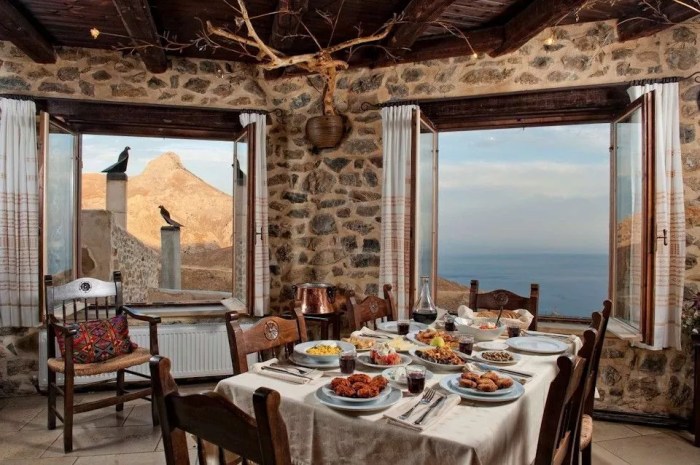
Source: webhotelier.net
The village’s commitment to preserving its rich traditions and natural beauty while providing enriching experiences for visitors is truly inspiring. Through the diverse range of activities and the involvement of local communities, the village demonstrates how cultural heritage and environmental conservation can coexist harmoniously. This model can serve as an example for other communities seeking to develop sustainable and culturally enriching ecotourism initiatives.
